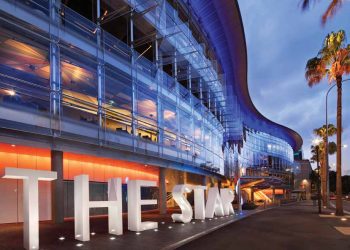Investment bank JP Morgan has modelled a bear case scenario for Macau’s 2025 and 2026 gaming outlook, explaining that its “cautious” forecast of 3% year-on-year GGR growth now seems optimistic and that the time has come to “decisively reset expectations”.
In a Tuesday note, JP Morgan analysts DS Kim and Selina Li said they were stress-testing their own assumptions to reflect a worst-case 10% sequential decline in gross gaming revenues in 4Q25 as mounting macro headwinds combine. Specifically, they caution of a slowing Chinese economy and a weaker RMB as a result of China’s tariff war with the US as having an indirect impact on Macau gaming stocks.
The result is downside of between 10% and 15% to Street EBITDA consensus even as the bank avoids applying aggressive rating changes to the six Macau concessionaires: Galaxy, MGM, Sands and Wynn remain Overweight, Melco Neutral and SJM Underweight.
“Historical trends suggest a 10%pt reduction in GGR loosely implies a ~5%pt slowdown in China’s GDP, hence we believe our cut reflects a reasonable bear-case,” the analysts explain.
“Our linear regression analysis on decades of US (65 years) and China (15 years pre-COVID) data underscores GDP growth as the predominant force driving GGR.
“We acknowledge that our new assumptions could prove overly pessimistic given China’s potential support measures and possibly some de-escalation in trade tensions.”
According to JP Morgan, Street consensus seems “increasingly detached and trailing evolving realities and lagging drawdowns rather than leading them” – thus the need for an expectation reset.
“This gap strengthens our push for an expectation reset, hoping the Street also aligns post 1Q earnings season. Such a shift could clear the way for select names, allowing investors to finally focus on ‘true valuation’ as the Street’s slow cuts have obscured their value so far.”
JP Morgan’s new model forecasts a 1% year-on-year decline in Macau market GGR to US$28.4 billion in 2025, followed by another 2% decline to US$27.7 billion in 2026, versus consensus of 6% growth each year.
The bank also forecasts a 5% decline in EBITDA to US$7.32 billion this year, levelling out next year, versus consensus of 5% growth in 2025 and 9% in 2026.




































